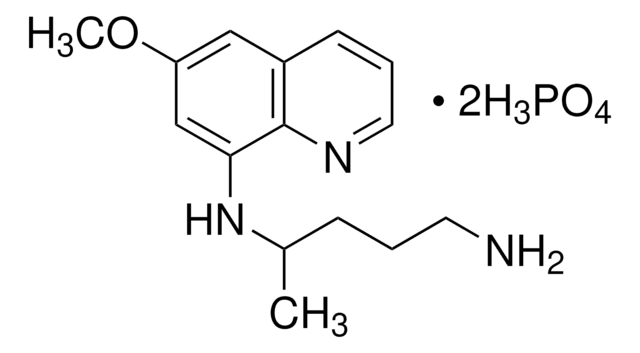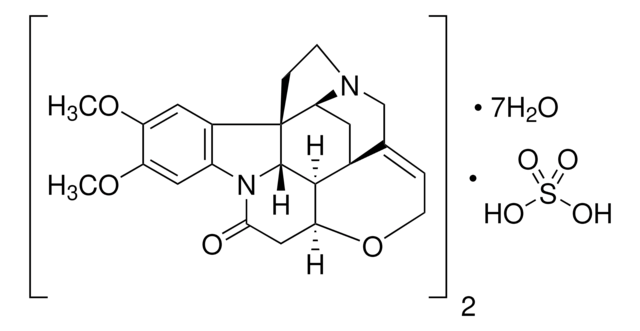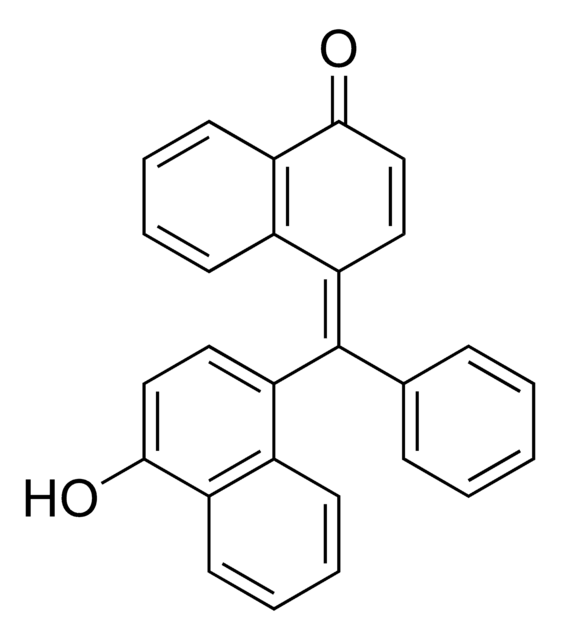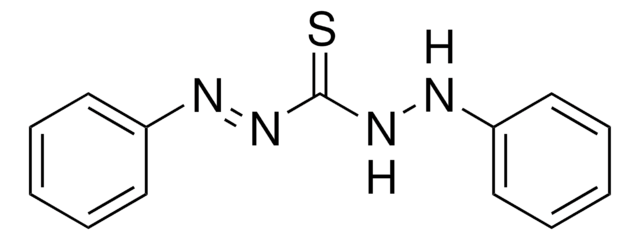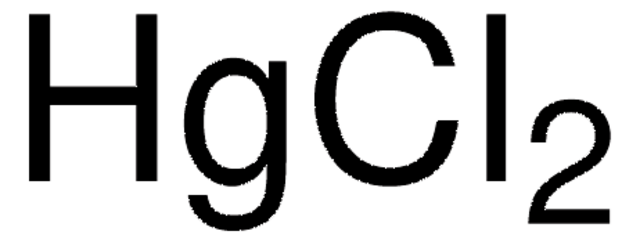83374
Mercury(II) thiocyanate
purum p.a., ≥95.5% (complexometric)
Synonym(s):
Mercuric isothiocyanate, Mercuric sulfocyanide, Mercuric thiocyanate, Mercury di(thiocyanate), Thiocyanic acid, mercury(II) salt
About This Item
Recommended Products
grade
purum p.a.
Quality Level
Assay
≥95.5% (complexometric)
form
solid
reaction suitability
core: mercury
reagent type: catalyst
mp
165 °C (dec.) (lit.)
density
3.71 g/mL at 25 °C (lit.)
cation traces
Ca: ≤50 mg/kg
Cd: ≤50 mg/kg
Co: ≤50 mg/kg
Cu: ≤50 mg/kg
Fe: ≤50 mg/kg
K: ≤1000 mg/kg
Na: ≤100 mg/kg
Ni: ≤50 mg/kg
Pb: ≤50 mg/kg
Zn: ≤50 mg/kg
SMILES string
N#CS[Hg]SC#N
InChI
1S/2CHNS.Hg/c2*2-1-3;/h2*3H;/q;;+2/p-2
InChI key
GBZANUMDJPCQHY-UHFFFAOYSA-L
Looking for similar products? Visit Product Comparison Guide
Application
It can be employed as a reactant for the synthesis of:
- Polymeric mercury(II) coordination complexes with various derivatives of 4,4′-bipyridine ligands via the branched tube method.
- Manganese mercury thiocyanate (MMTC), an organometallic optical single-crystal.
- Heterotrinuclear copper(II)–mercury(II)–copper(II) complexes possessing antibacterial and antifungal activities.
Signal Word
Danger
Hazard Statements
Precautionary Statements
Hazard Classifications
Acute Tox. 1 Dermal - Acute Tox. 2 Inhalation - Acute Tox. 2 Oral - Aquatic Acute 1 - Aquatic Chronic 1 - STOT RE 2
Supplementary Hazards
Storage Class Code
6.1A - Combustible acute toxic Cat. 1 and 2 / very toxic hazardous materials
WGK
WGK 3
Flash Point(F)
248.0 °F - closed cup
Flash Point(C)
120 °C - closed cup
Personal Protective Equipment
Regulatory Listings
Regulatory Listings are mainly provided for chemical products. Only limited information can be provided here for non-chemical products. No entry means none of the components are listed. It is the user’s obligation to ensure the safe and legal use of the product.
PDSCL
Poisonous substance
PRTR
Class I Designated Chemical Substances
ISHL Indicated Name
Substances Subject to be Indicated Names
ISHL Notified Names
Substances Subject to be Notified Names
JAN Code
83374-BULK:
83374-VAR:
83374-100G:4548173352602
83374-500G:4548173352619
83374-5G:4548173352626
Choose from one of the most recent versions:
Already Own This Product?
Find documentation for the products that you have recently purchased in the Document Library.
Customers Also Viewed
Our team of scientists has experience in all areas of research including Life Science, Material Science, Chemical Synthesis, Chromatography, Analytical and many others.
Contact Technical Service



